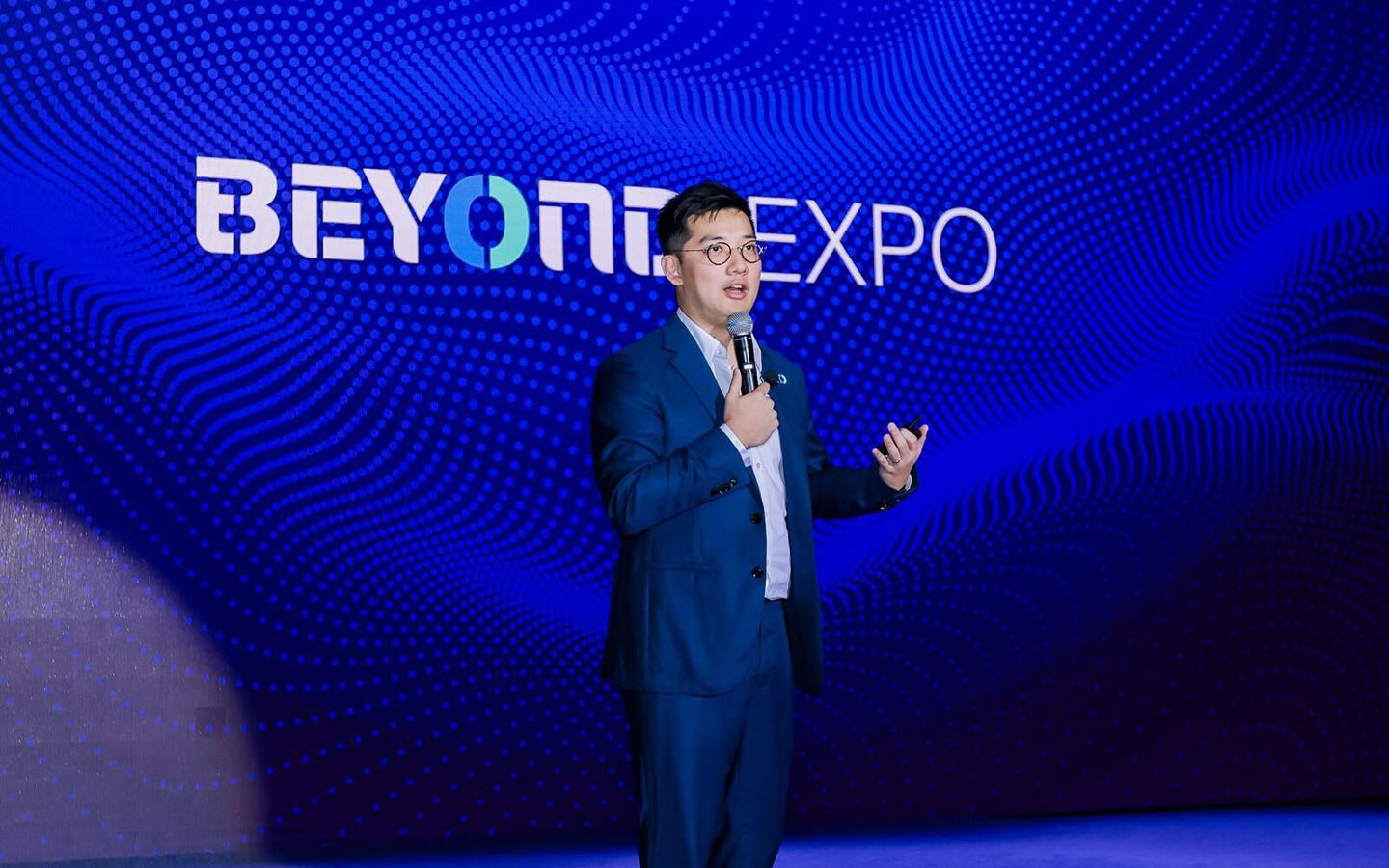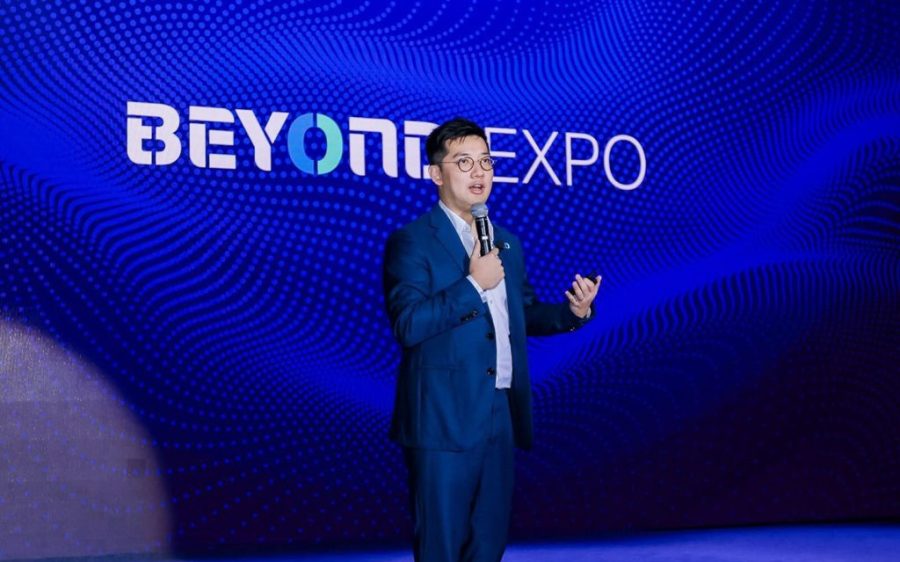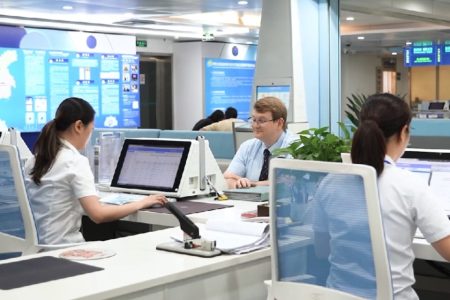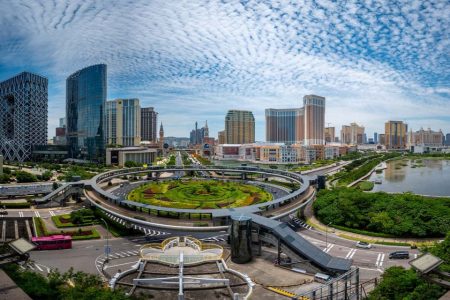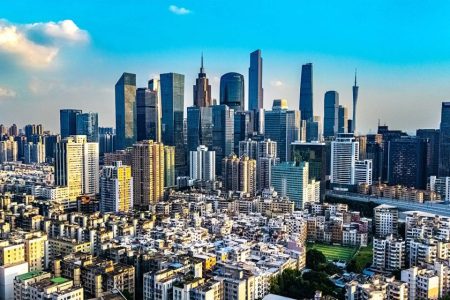The opening ceremony of BEYOND Expo 2025 – one of the biggest technology and innovation conferences in Asia – took place this afternoon at the Parisian in Cotai. The exhibition’s co-founders Jason Ho and Lu Gang kicked things off with a video featuring highlights from its four previous iterations, which they presented via robotic avatars made by Shenzhen-headquartered firm UBTech.
Afterwards, Ho took the stage in person to emphasise the need for greater global attention to the innovation going on in Asia, home to 60 percent of the world’s population. He noted that the fifth edition of BEYOND had “reached new heights again” with over 500 start-ups, 80 unicorn companies and more than 300 speakers in attendance.
[See more: Beijing is investing millions in an AI ecosystem built entirely with Chinese technology]
The three-day event serves as a platform for established as well as up-and-coming companies in Asia to showcase their latest technology and products. Summits are also a key part of Beyond Expo, with hundreds of speakers gathering to discuss issues like investment, women in the tech industry and the latest sector developments.
Wang Jian delivers keynote speech at Beyond Expo 2025
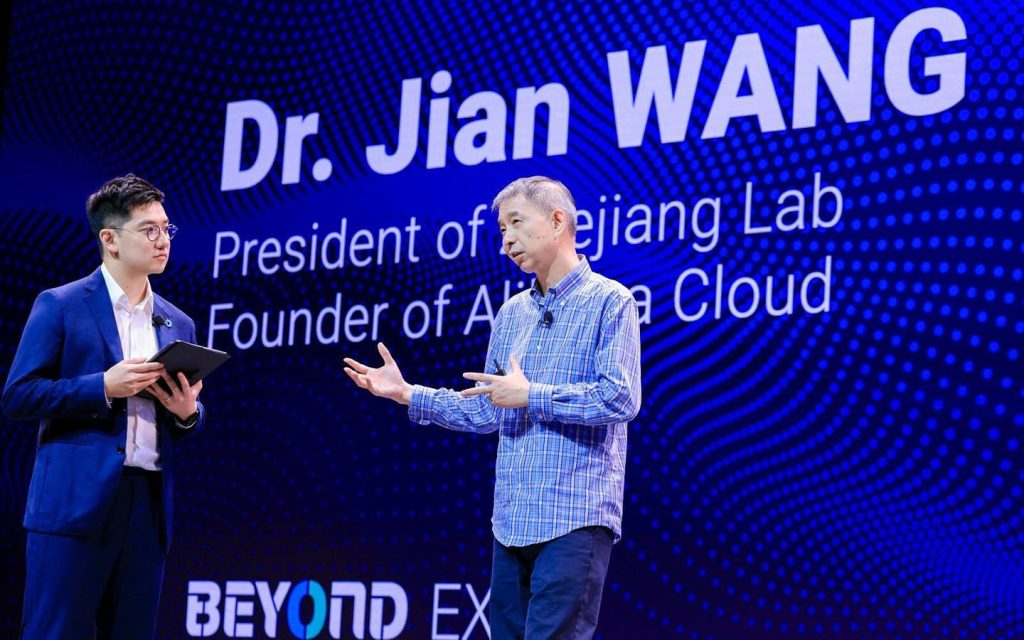
After the opening address, Ho introduced Wang Jian, the president of science and tech platform Zhejiang Lab and the founder of Alibaba Cloud, to deliver a keynote speech titled “Endless Computing, Endless Frontiers Exploration.” In it, he explored milestone moments in the history of computing and its convergence with space science.
Wang began by acknowledging early computing science pioneer Alan Turing (1912- 1954), who envisioned that someday humans would “create a machine that we call the digital computer.” He also touched on the origins of artificial intelligence (AI), noting that “the idea of AI was created by 10 people” back in 1956 at a summer science convention held at Dartmouth College, an Ivy League institution in the US.
[See more: Shenzhen’s new Science and Technology Museum opens its doors]
Regarding the early days of space exploration, Wang spoke of the so-called artificial satellites Sputnik 1 and Explorer 1 launched respectively by the Soviet Union and the US in 1957 and 1958. These allowed for “a lot of measurement and observation that could never be done before” and altered the way humans thought about planet Earth, Wang noted.
“Technology in space is always helping us to achieve something that we never considered before,” he continued. Wang pointed out that the Apollo Guidance Computer, developed for the US Apollo space programme, contained over 16,000 transistors today – far more than the approximately 2,000 found in the first CPU Intel created in the early 1970s.
According to Wang, cooperation was essential to both advancing the field of space computing and addressing challenges facing humanity. He cited China’s recent launch of 12 satellites under the Three-Body Computing Constellation initiative as an example of this in practice (the large-scale space computing infrastructure is being developed by Wang’s Zhejiang Lab alongside global partners).
[See more: Macao’s first astronaut is prepping for a maiden spaceflight]
In terms of future technological developments, Wang described AI as just the beginning:
“there’s a lot of opportunities we never had before,” he said. During a Q&A session following his speech, Wang said that truly disruptive technologies – like ChatGPT’s Chinese rival DeepSeek – often emerged from unexpected places, including small companies.
Unicorn founders speak at Macao’s Beyond Expo 2025
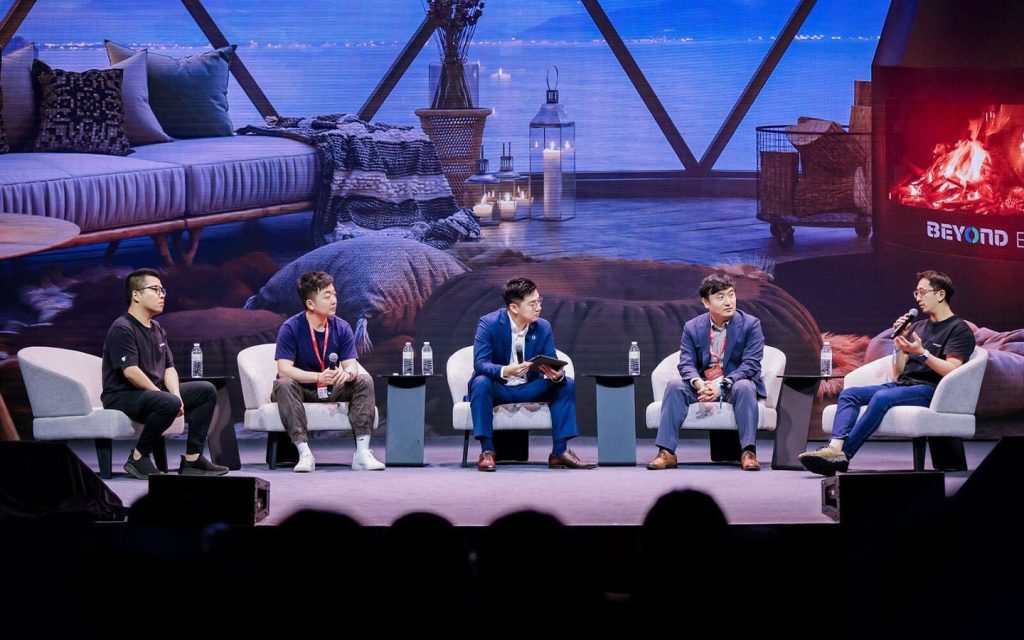
Next up on BEYOND Expo’s agenda was a “fireside chat” between the minds behind four unicorn companies: Insta360 founder, Liu Jingkang; the co-founder and CEO of Nothing, Carl Pei; the CEO and chief scientist of Sichuan Aerofugia Technology Development CO, Burt Guo; and the CEO and founder of Agile Robots SE, Chen Zhaopeng. Unicorn companies, incidentally, are those valued at US$1 billion or more before being publicly listed.
Ho, the moderator, began by asking Liu about how he developed his company – known for its 360-degree action cameras. Liu explained that he’d initially been inspired by the US company Go-Pro’s products, and decided to focus on the sports sector after seeing how athletes embraced Insta360 cameras by fixing them to their helmets.
Ho then asked Pei how he defined his minimalistic-yet-high-tech smartphone company, Nothing. Pei replied that he wanted to bring “excitement” back into the phone industry, which he didn’t consider particularly competitive “as long as we clearly target our consumers.”
[See more: Could Hengqin’s unmanned systems industry boost Macao’s economy?]
Guo, meanwhile, was asked about the definition of a good product. He answered that “safety” was the number one attribute – which makes sense given his company makes low-altitude unmanned aerial vehicles (UAVs). Guo also described “comfortability” and “sustainability” as desirable elements.
On the subject of robots, Chen explained that a product’s most important component was “intelligence” and the software that powered it. Regarding hardware, he emphasised the significance of sensors and cameras, while noting that “software and hardware cannot be separated.”
When asked about overseas expansion, Pei said that his UK-based company hoped to take advantage of the fact that many highly educated tech talents were struggling to find work in Europe due to a lack of tech firms in the region.
The founders also discussed the challenges their companies faced as unicorns, including intellectual property theft, excessive competition and monopolisation from large established companies. Asked for a piece of advice to give fledgling entrepreneurs, Chen recommended “solving problems that are worth the pain.”
[See more: Macao hopes to establish two funds to spur diversification and attract large firms]
Inaugurated in 2021, Beyond Expo 2025 is on until 24 May at the Venetian’s Convention and Exhibition Centre. There are three major exhibition areas: consumer tech, climate tech and healthcare.
Over 30,000 visitors and 1,200 exhibitors are expected to be attending the event this year, surpassing the figures from the 2024 iteration.
Some of the headline speakers this year include former NBA player turned venture capitalist Metta Sandiford-Artest (aka Metta World Peace); Zack Kass, an AI expert who formerly led Open AI’s go-to-market operations, and Mario Ho, the founder of Ninjas in Pyjamas and the son of the late Macao casino tycoon, Stanley Ho.
